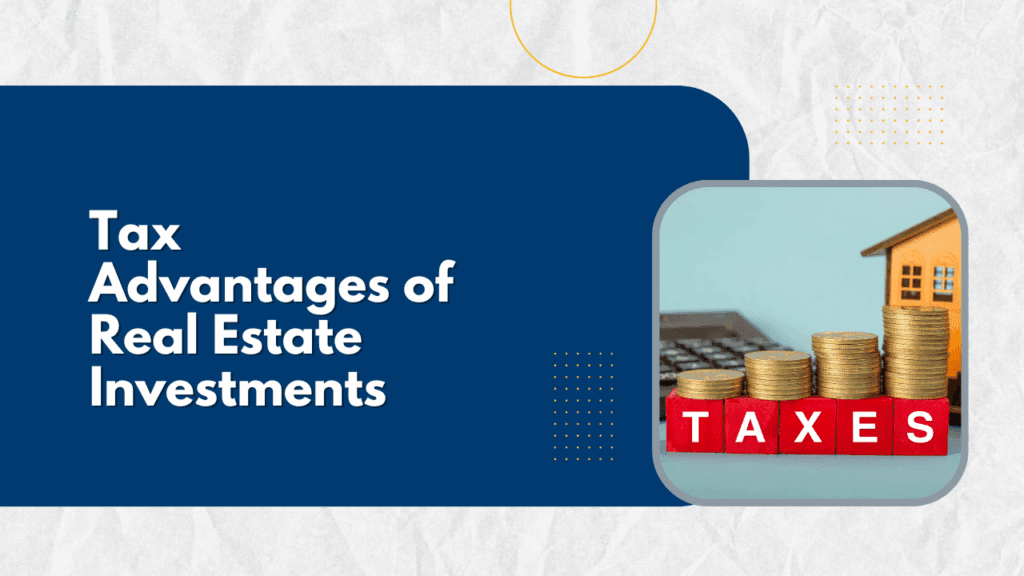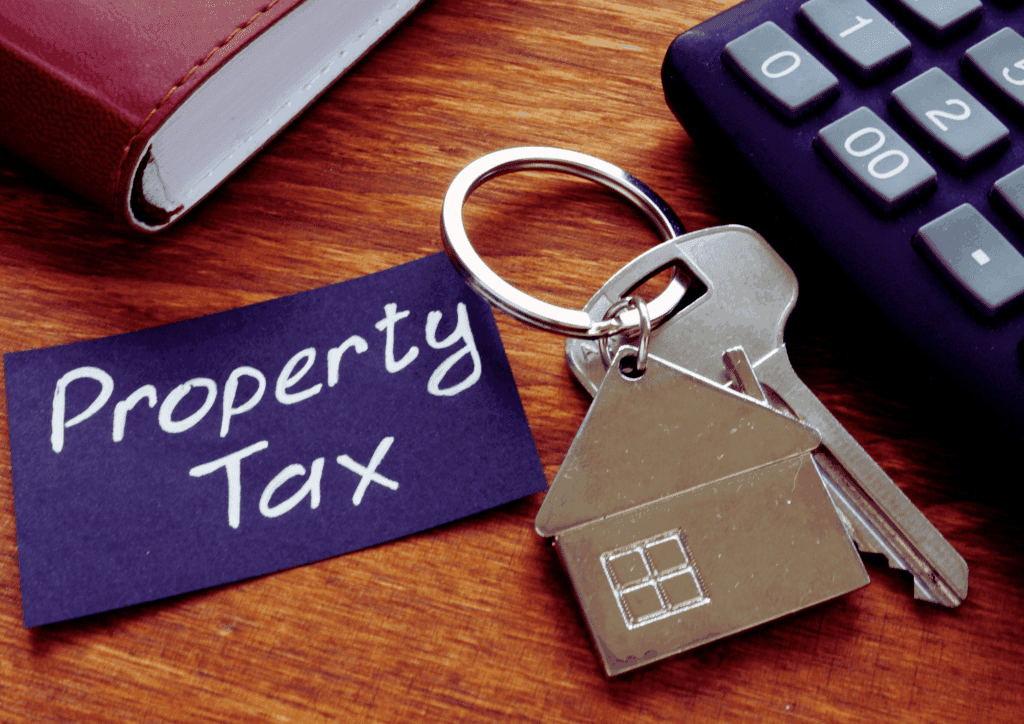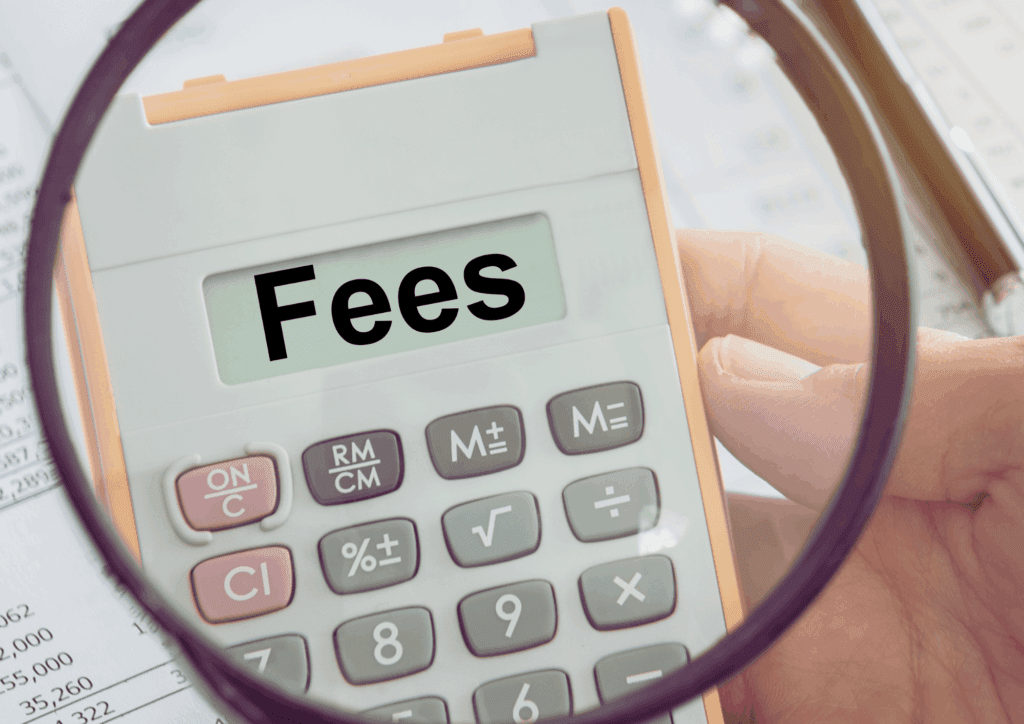
The most successful real estate investors we work with understand that the appeal of rental property goes far beyond steady cash flow and long-term appreciation.
There’s a lot more to it. And one of the most powerful and often underutilized benefits can be found in the tax advantages that come with owning income-producing real estate. While market trends may fluctuate and property management comes with its challenges, the U.S. tax code is structured in a way that heavily favors real estate investors who understand how to navigate it.
From deductions that reduce your taxable income to strategies that allow you to defer or even eliminate capital gains, rental property ownership opens the door to a wide range of financial tools that can significantly enhance your bottom line. Whether you’re an experienced real estate investor or just starting to build your portfolio, understanding these tax benefits is a great way to maximize returns and build lasting wealth.
We’re offering these insights as professional property managers. We aren’t tax experts ourselves, and we always recommend that property owners talk to a CPA or a tax attorney. Our experience, however, can show you the remarkable tax advantages that come with owning rental property. When we talk to investors, we like to discuss everything from depreciation and expense write-offs to 1031 exchanges and passive income treatment.
Let’s have a look.
Depreciation: A Powerful Tax Benefit for Rental Property Owners
We want to make sure all eligible real estate investors are leveraging their depreciation to their best tax advantage. This is one of the most powerful tax benefits you have, and yet depreciation is often overlooked. While many landlords are familiar with deductions for mortgage interest, repairs, and property management fees (all of which we will talk about), depreciation can quietly reduce your taxable income year after year. Even better – this is done without affecting your cash flow.
Not sure you’re utilizing this tax advantage as much as you could be? Let’s break down what depreciation is, how it works, and why it’s such a valuable tool for real estate investors.
| What Is Depreciation?
Depreciation is the process of deducting the cost of a tangible asset over its useful life. In the case of rental properties, the IRS allows owners to depreciate the structure (not the land) over a period of 27.5 years for residential real estate. This means that each year, a portion of the building’s value can be written off as a tax deduction—even though the property may actually be appreciating in market value. |
How Depreciation Works
Let’s say you buy a rental property for $800,000. After a proper allocation, you determine the building itself (excluding land) is worth $640,000. According to IRS guidelines, you can divide that amount by 27.5 to calculate your annual depreciation deduction. $640,000 ÷ 27.5 = $23,272 per year in depreciation. This reduces your taxable gains, even if you didn’t spend any cash out of pocket. |
Depreciation lowers your taxable income without impacting your actual income. Depending on your tax bracket, that could mean thousands of dollars in savings each year.
Depreciation can also contribute to a “paper loss” situation, where your property shows a taxable loss even if you’re making a profit. This can potentially offset other income, depending on your overall tax situation and whether you qualify as a real estate professional.
There are some important considerations to be aware of as you’re calculating your depreciation and claiming it on your taxes.
| Recapture Tax
When you sell the property, the IRS requires you to “recapture” the depreciation, taxing it at a rate of up to 25%. However, strategies like a 1031 exchange can defer this liability. |
| Cost Segregation
Advanced strategies like cost segregation allow you to accelerate depreciation on certain components of the property (e.g., appliances, landscaping), increasing deductions in the early years of ownership. |
| Record Keeping
Always maintain accurate records of the property’s cost basis and the depreciation schedule used. A tax professional can help ensure compliance and optimize your strategy. |
Depreciation may sound like an accounting concept, but it means a lot to investors in rental real estate who can leverage this powerful tax advantage to significantly enhance the profitability of a rental property investment. Don’t leave this benefit on the table.
Mortgage Interest as a Tax Deduction
 The mortgage interest deduction allows property owners to subtract the interest paid on a loan used to buy, build, or improve rental property from their taxable income.
The mortgage interest deduction allows property owners to subtract the interest paid on a loan used to buy, build, or improve rental property from their taxable income.
Note: This is not the same as the mortgage interest deduction available to homeowners for personal residences. This version applies strictly to income-producing properties and falls under business expense rules.
- How It Works for Rental Properties
When you own a rental property, you report your income and expenses on Schedule E of your federal tax return. Mortgage interest is listed as one of the deductible expenses. You’ll need to track how much interest you pay each year, and this is an amount that is typically provided by your lender. You should receive a Form 1098 by the end of January every year.
Maybe you own a rental home with a mortgage balance of $300,000 and you paid $12,000 in mortgage interest during the year. That full $12,000 can usually be deducted against your rental income, lowering your taxable income and potentially pushing you into a lower tax bracket.
- Requirements to Qualify
To take advantage of the deduction, the property must be rented or available to rent. It’s okay if there was a vacancy for part of the year. You must also be the person legally liable for the mortgage, and the loan must be secured by the property itself. Use this quick checklist to confirm that you’re eligible to take this deduction:
- You must own the rental property.
- You must be legally responsible for the mortgage.
- The loan must be used to buy, improve, or maintain the rental property.
- The property must be rented or available for rent.
- Watch Out for Personal Use
If you use the property for personal purposes (for example, a vacation home you rent out part-time), you’ll need to divide your expenses between personal and rental use. Only the portion related to rental use is deductible.
The mortgage interest deduction is something most rental property owners can use to reduce their tax liability and increase the profitability of their investment. Just be sure to keep good records, file the correct forms, and consider working with a tax professional to maximize your deductions and stay compliant.
Property Taxes and Insurance: Additional Deductions

You can’t own any kind of property without paying taxes. You also have to pay your insurance premiums in order to protect your investment. Good news: these are deductible!
- Property Taxes
Property taxes are typically assessed by your local government and are based on the value of your property. As a rental property owner, you can deduct the full amount of property taxes you pay each year on your rental property from your rental income. This is a big help.
You’ll claim your deduction on Schedule E (Form 1040), where you report income and expenses from rental real estate. You’ll have to report all rents. That’s part of your income. But, deducting the taxes you pay for your rental property can help you pay less in federal income tax.
It’s important to note that only the taxes directly related to your rental activity are deductible. If you live in the property part-time or use it for personal purposes, you’ll need to allocate the deduction proportionally based on how often the property is used for rental versus personal use.
Keep detailed records of your property tax bills and payments. These records not only support your deduction but can also be crucial in the event of an audit.
- Insurance Premiums
In addition to property taxes, rental property insurance is another expense that’s fully deductible. This includes coverage for:
- Property damage (fire, flood, theft, etc.)
- Liability insurance
- Loss of rental income
- Umbrella policies
- Landlord-specific policies
Just like with property taxes, insurance premiums are deducted on Schedule E. If you pay your insurance in one lump sum but it covers multiple years, you’ll need to prorate the expense and deduct the portion that applies to the current tax year.
If you also have mortgage insurance or hazard insurance as part of your mortgage payment, that portion can also be deductible as long as it’s related to the rental activity.
|
What You Can’t Deduct It’s worth noting that while property taxes and insurance premiums are deductible, penalties, fines, or assessments for improvements (like sidewalks or sewer systems) generally are not. Improvements must be capitalized and depreciated over time rather than deducted all at once. |
To ensure you’re making lawful and proper deductions, keep excellent records. You’ll potentially need invoices, receipts, and any correspondence related to your taxes and insurance payments. If you’re not already working with a professional property manager who can provide the necessary accounting, consider investing in software or technology that will help you track deductions and simplify things like property taxes and insurance premium totals.
Maintaining Your Rental Property is a Business Expense

There’s more good news for rental property owners at tax time. Those expensive, frustrating, and often disruptive maintenance issues and repairs can be deducted.
The IRS allows landlords to deduct ordinary and necessary expenses for managing, conserving, and maintaining rental property. These are typically costs that keep your property in good working condition, but don’t add significant value or extend its life (those would be considered improvements and must be depreciated instead).
Some common deductible maintenance expenses include
| Plumbing repairs
Fixing a leaking faucet or unclogging a drain. |
Pest control
Hiring an exterminator to address insects or rodents. |
Painting
Touching up walls during turnover and between tenants. |
Cleaning services
Deep cleaning before a new tenant moves in. |
| Electrical work
Replacing faulty wiring or a broken light fixture. |
Landscaping
Regular mowing, tree trimming, or snow removal. |
HVAC servicing
Routine maintenance on your heating or cooling systems. |
Appliance repairs Fixing a refrigerator, stove, or washer/dryer. |
Remember, maintenance work that restores the property to its previous condition or ensures it’s habitable is deductible in the year the expense is incurred.
What’s Not Deductible Immediately?
Be careful not to confuse maintenance with improvements. The IRS takes this distinction pretty seriously. When you’re replacing an entire roof, installing granite countertops, or upgrading your plumbing system, those are considered capital improvements. While you can’t deduct those costs in full right away, you can recover them over time through depreciation.
The key difference you should be thinking about? Maintenance keeps the property in rentable shape. Improvements add value or extend its useful life.
- Keeping Good Records
This is a recurring theme, and it’s an important one. To take full advantage of maintenance deductions, documentation is crucial. Save all receipts, invoices, and proof of payment. Keep a log of dates, services performed, and the purpose of the maintenance. This not only protects you during tax season—it also provides helpful insights into the property’s upkeep over time.
- Don’t Forget Labor and Mileage
If you hire someone to perform maintenance, their labor cost is deductible. If you’re doing the work yourself, your labor isn’t deductible—but any materials or supplies you buy are. Also, if you travel to your rental property for maintenance, you can deduct mileage or travel expenses, so long as it’s well-documented and solely for rental-related purposes.
Rental property maintenance is an important part of protecting the value and condition of your property. It’s also an important part of providing tenant service and keeping your renters satisfied. Smart investors understand that good maintenance work also provides an opportunity to reduce your taxable income. Understanding which expenses qualify as deductible and tracking them throughout the year can help you keep more of your rental earnings.
Property Management Fees and Professional Services: A Welcome Deduction

Not sure whether or not you want to work with a professional property manager?
Let’s provide an extra incentive: those property management fees are tax-deductible.
One of the most common professional expenses for rental property owners is the cost of a property management company. Whether you own a single unit or multiple properties, management companies like ours handle day-to-day tasks like collecting rent, coordinating repairs, screening tenants, and even dealing with evictions. We manage leasing and provide accounting services. You pay a monthly fee for this, but in the end, professional management more or less pays for itself.
Under IRS rules, property management fees are considered ordinary and necessary expenses for maintaining and operating a rental property. That means they’re fully deductible on your Schedule E tax form, which landlords use to report income and expenses from rental real estate.
Let’s say you pay a management company 10% of your monthly rent collections. That percentage, along with any setup fees or leasing fees paid to the manager, can all be deducted from your rental income—lowering your taxable profit.
It’s not just property management. You can deduct additional professional service payments such as:
- Accounting
Rental property ownership comes with its fair share of paperwork and compliance requirements. Hiring an accountant to manage your books, prepare tax documents, or advise on depreciation strategies is another deductible expense.
- Legal Support
Similarly, if you need legal help in drafting lease agreements, serving legal notices, defending yourself against security deposit claims, or going to court for an eviction, attorney fees related to those services for your rental property are also tax-deductible.
Keep in mind, only services directly related to your rental property qualify. For example, legal fees for personal matters or accounting advice unrelated to your rentals wouldn’t be eligible.
Other Deductible Professional Services
Beyond management, legal, and accounting help, there are other professional services that can potentially qualify for deductions:
| Consulting fees for real estate investment advice (as long as it’s related to managing or improving your existing rental properties). | Advertising and marketing services used to promote your vacancies. | Software subscriptions for property management or bookkeeping tools, like QuickBooks or Buildium. |
The key is that these expenses must be ordinary and necessary for your rental activity. Keep thorough records and receipts to support your claims in case of an IRS audit.
To take full advantage of these deductions, meticulous recordkeeping is essential. Save all invoices, contracts, and payment records associated with professional services. If you’re ever audited, you’ll need to prove that each expense was business-related and directly tied to your rental activities.
Owning rental property offers a variety of tax advantages that can significantly enhance the profitability of your investment. From deducting mortgage interest and property taxes to claiming depreciation and deducting maintenance and repair costs, these tax benefits can help offset the costs of ownership and increase your overall return on investment.
We can help you with property management, and also with the kind of investment advice that leads you to seizing these important opportunities. Please contact us at Krystle Properties. We lease, manage, and maintain rental homes in Benicia, and we also work in surrounding areas such as Vallejo, American Canyon, and Fairfield.



